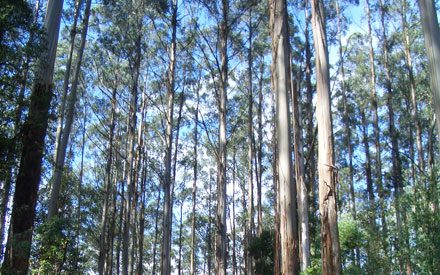
Why do we refuse to understand that sometimes we are best placed to handle sensitive issues? Why can’t we accept that we do it better, that we care, that we are responsible. In particular, on the issues of forestry logging and live animal exports. Source: Herald Sun
We appear hellbent on eradicating both with hardly a thought as to what would be the alternative. Both are on the nose locally, yet both are highly regulated in Australia and subject to public scrutiny, unlike most industries.
And both are at the mercy of blatant vote-chasing that could drive both industries offshore, achieving the exact opposite of what those opposed to the industries actually want. It is bizarre.
The imminent closure of the Heyfield timber mill is symptomatic of a movement that could eventually drive the timber industry offshore — and I’m not talking Tassie — and cause far more harm to the environment than if it were to continue here.
So too the persistent push to drive live animal exports to other countries. That would be just plain cruel.
The local timber industry has access to 6% of the total forest area in the state. Not the whole 6% at the one time, but a highly regulated rotation of logging coups so there is no scalping of whole areas.
The timber destined for the Heyfield timber mills at the centre of the current controversy comes from areas grown back since the 1939 fires.
So, what is the alternative to killing the local timber industry? If the timber were to be sourced from Asia, it would come from an industry that faces few if any regulations, that corruptly eradicates swathes of forests and jungles with little or no regard to the villagers or animals in its path and often is overseen by corrupt officials in it for a buck, not the good of the planet.
It is the same argument with live animal exports. Australia is the only exporting country that takes responsibility for the animals even after they arrive at their destination. And that is on the most state-of-the art ships operating under the tightest welfare laws in the world.
What that will happen if Australia bans live exports? Well, the demand for live animals won’t stop, for live export is the only way many people without access to refrigeration can get protein. Instead, they will turn to countries that have little or no regard for animal welfare.
The main source would be South America. And countries on that continent have nothing like the welfare standards of Australia. Look at Brazil, which in the past week has become engulfed in a meat scandal, with an accusation that processors are substituting chicken meat with all sorts of products and selling rancid beef to Europe.
And the money trail of bribes in that scandal goes to the high offices of power. Is that who those opposed to live exports wish was handling live animals?
The debate over timber and live exports is largely driven by ideology, not with any thought to the end game. And that ideology is pandered to by politicians who fear the mob will hunt them down and steal electorates occupied by a great many of the tut-tut brigade.
The live export industry and timber harvesting are legitimate regulated businesses. They support people who have just as much right to a job and income as you or I.
It is time people started to think where their concerns will lead to — not just here but overseas as well.





